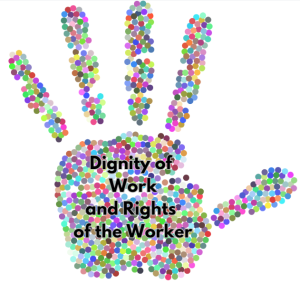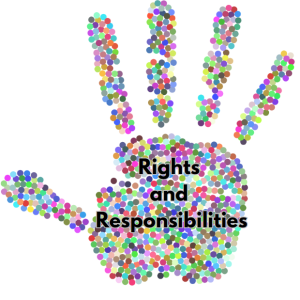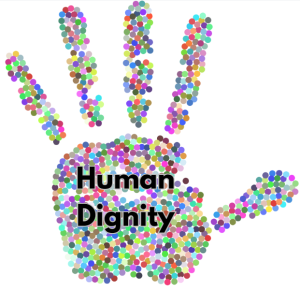Catholic Social Teaching

Catholic Social Teaching
Catholic Social Teaching (CST) is a rich tradition of thought and action rooted in the teachings of the Church, aimed at promoting justice, peace, and the dignity of all people. It encourages Catholics to live out their faith by responding to the needs of others, particularly the poor and marginalised. CST is built on principles such as the dignity of the human person, solidarity, the common good, subsidiarity, and care for creation. These principles guide individuals and communities in making ethical decisions that contribute to a just and loving society.
What we do isn’t just because it feels like ‘the right thing to do’,
it is because it is what we are taught to do by our Catholic faith.
At St. Joseph’s, we explore these important principles through our assemblies, with a new focus each half term. By focusing on one principle at a time, we encourage our children to reflect on how they can live out these teachings in their daily lives, both in school and beyond. Whether it’s understanding the importance of caring for the environment or advocating for the rights of others, Catholic Social Teaching is central to how we form compassionate, responsible citizens who live with love, respect, and justice.
Autumn 1- Stewardship of God’s Creation (Care for Creation)
We must care for the environment, responsibly managing it for future generations.
“The earth is the Lord’s and everything in it, the world, and all who live in it.”Psalm 24:1
This half term, we have been focusing on the Catholic Social Teaching principle of Stewardship of God’s Creation. We have reflected on the beauty of the world that God has entrusted to us and acknowledged the harm we have caused by not caring for it as we should. We understand that God calls us to be responsible stewards of the environment, treating it as a precious gift. We’ve discussed simple actions we can take to make a positive impact, such as reducing waste and taking better care of our resources. During our Harvest Festival, we also considered how we can help others by donating food to those in need, rather than letting it go to waste. Through these reflections and actions, we are learning how even small changes can contribute to a more sustainable and compassionate world.

Laudato Si’
As part of our work on Stewardship of God’s creation, we have learnt about Pope Francis’ encyclical, Laudato Si’, which addresses the urgent environmental challenges facing our world. The title, which means “Praise Be to You,” is inspired by St. Francis of Assisi’s famous Canticle of the Creatures, which celebrates the beauty and interconnectedness of God’s creation. In this letter, Pope Francis calls for a global response to the environmental crisis, urging people of all faiths and backgrounds to care for the Earth and its inhabitants.
St. Mother Teresa of Calcutta said:
“Is what I am doing to serve the poor just a drop in the ocean?
Yes. But many drops make a different ocean”
Here are some websites if you would like to find out more about Laudato Si’ and the Diocese of Brentwood’s response to this:
https://www.dioceseofbrentwood.net/laudatosi/
https://cafod.org.uk/Education/Primary-teaching-resources/Laudato-Si-for-children
Laudato Si Letter from Pope Francis
Autumn 2- Solidarity and the Common Good
We are called to unite as one family, ensuring everyone’s well-being is protected and valued.

“In truth I tell you, in so far as you did this for one of the least of these brothers [or sisters] of mine, you did for me” Matthew 25:40
Spring 1- Family and Community
Families and communities are essential to nurturing individuals and communities

“Honour your father and mother, that your days may be long in the land that the Lord has given you.”
Exodus 20:12
Spring 2- Preferential Option for the Poor
We are called to prioritise the needs of the poor and marginalised.

“Speak up for those who cannot speak up for themselves…defend the rights of the poor and needy” Proverbs 31:8-9
Summer 1- Dignity of Work and Rights of the Worker
Workers deserve fair pay, safe conditions, and respect for their dignity through meaningful work.

Summer 2- Rights and Responsibilities
Each person has rights and duties to contribute to the common good of society.

“When each separate part works as it should, the whole body grows and builds itself up through love.” Ephesians 4:16
Within our Behaviour Policy and Gospel Values: Human Dignity
Every person, made in God’s image, deserves respect and care.

“Before I formed you in the womb, I knew you” Jeremiah 1:5



